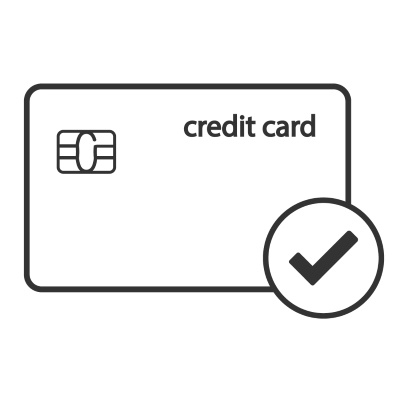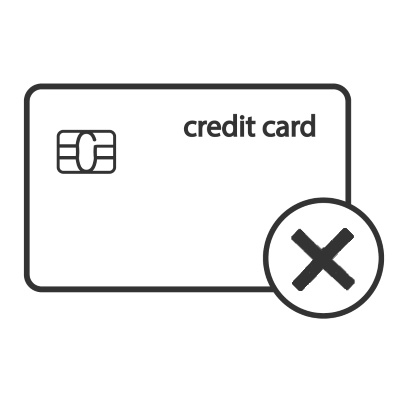What are the pros and cons of getting a credit card?
It's good to apply with your eyes wide open

Sign up for breaking news, reviews, opinion, top tech deals, and more.
You are now subscribed
Your newsletter sign-up was successful
It's difficult to debate against the argument that credit cards are a useful financial tool for a variety of purchases and situations. They can obviously help you purchase items that you may not have the ready cash to afford, and can also help boost your credit score and open the doorway to freebies and vouchers.
But anybody applying for a credit card should be fully aware of the potential hazards, too - the downsides of having a credit card should be kept in mind as well.
In this article, we'll take you through through some common pros and cons of obtaining a credit card. By the time you've read them through, you should be in a much better place to decide whether you really need one and, if so, what dangers you may be facing.
- Just want to see what you can get now? Check out the best credit cards to apply for
TechRadar has partnered with The Points Guy Affiliate Network for our coverage of credit products. TechRadar and The Points Guy may receive a commission from card issuers.

Credit cards - the pros
Payments

This is the most obvious benefit to having a credit card on hand. They can provide flexibility in payments, so rather than having to pay for the entire purchase at once a credit card can make it more affordable by allowing the payments to be spread out over a longer time period. This is especially useful for an unexpected financial need, such as a car and home repairs or sudden need to travel long distances.
Rewards
The reason why so many people in the US get themselves a credit card...rewards! Yep, we all like to get some points, freebies or even cash when we spend. Many credit cards offer a reward system, where the more that the user charges the greater bonus is offered. This reward can take different forms, commonly as cashback, airline miles or points to be used for the purchase of future travel, such as plane tickets.
These types of reward can certainly be a valuable incentive to use the card. However, be aware that the cards that offer these rewards often balance this giveaway with a higher interest rate, or higher annual fee so it may not be the best overall deal when considering your usage pattern.
Safety
While perhaps a little counter-intuitive, purchasing with a credit card can actually be safer than with another payment method.
This is because credit card companies have built in fraud protections and other services for when you use them. For example, if you are sold a service that was misrepresented or a product that has not lived up to expectations, then the charge can be protested and the credit card company is on your side to make it right with the merchant. There is also protection for a product that breaks prematurely, with many credit cards doubling the manufacturer’s warranty for up to a year, which is like getting an extended warranty for no extra charge.
Credit cards are inherently safer than a debit card as there is protection from fraud with a credit card, while with a debit card the account it is tied to can be totally cleaned out with potential difficulties in getting the money back.

Credit cards - the cons
Overspending

This is the main problem with credit cards, in our eyes. Once you have one, there's nothing stopping you spending all the way up to your credit limit...even if you can't really afford to.
With cash, you at least get limited to purchases at a cost that is less than the cash in your pocket. With a credit card, the higher spending limit can entice a user into spending more and living beyond their means. Financial discipline is key to avoiding this situation through responsible spending, but that isn't always easy if you know the ability to abuse it is at your hands.
So if you know that you have little willpower and love to spend, spend, spend, we'd seriously suggest avoiding credit cards or else risk landing yourself with an ever-growing mountain of debt.
Annual fee
When considering a credit card, be sure to look into the associated fees. An important one is the annual fee, which is paid to the issuing bank. Also be aware that there are cards available with no annual fee to keep the cost down. Our handy guide on picking the right credit card should help you to choose.
Fraud
Now we're by no means trying to scaremonger you here, but owning a credit card does expose your account to fraud. That's because your credit card number can be stolen by thieves and then used in attempt to use your credit. There are many ways this happens, with common scenarios being that the card gets physically lost or your information gets stolen online.
Be sure to keep your card with you and take appropriate precautions to keep yourself safe online. That might include having your cellphone operating system up to date and using good antivirus software. Also be aware that if you do become a victim of fraud with a crook using your credit card, be sure to report the theft right away to your credit card company so they can cancel the card - you are only responsible for the first $50 of liability, with many banks not even charging that if they are notified in a timely fashion.

Editorial Disclaimer: Opinions expressed here are the author’s alone, not those of any bank, credit card issuer, airlines or hotel chain, and have not been reviewed, approved or otherwise endorsed by any of these entities.
Inbody image credit: Shutterstock
Sign up for breaking news, reviews, opinion, top tech deals, and more.
Jonas P. DeMuro is a freelance reviewer covering wireless networking hardware.